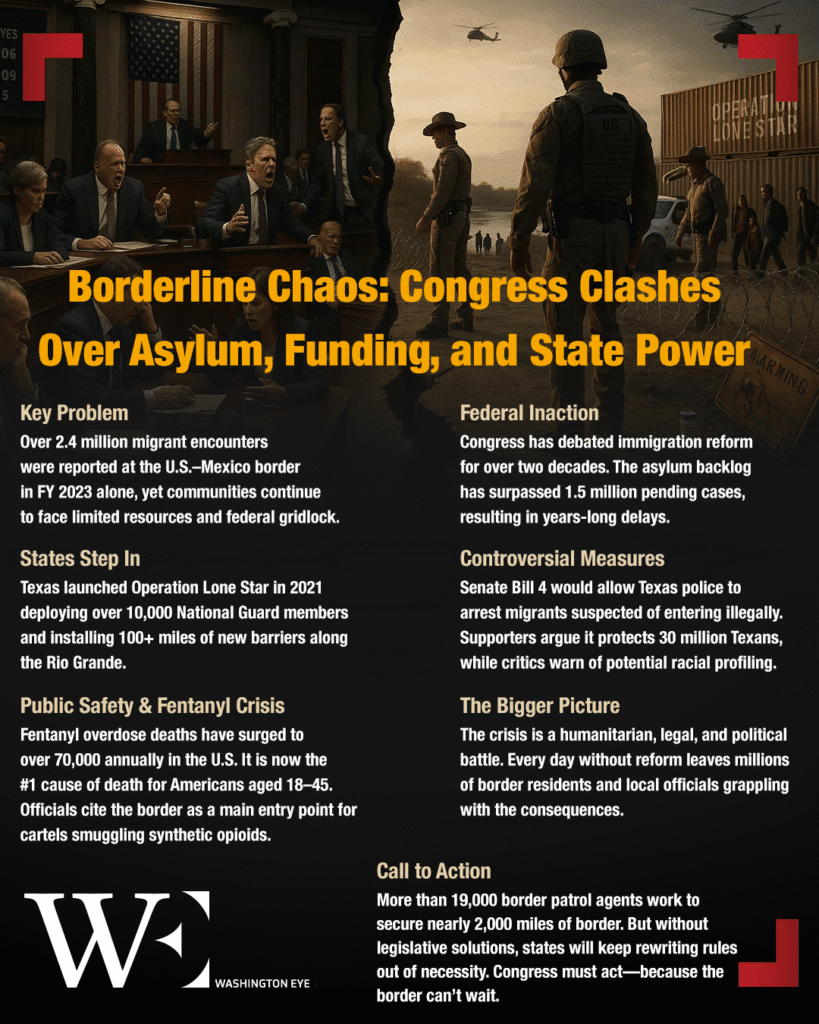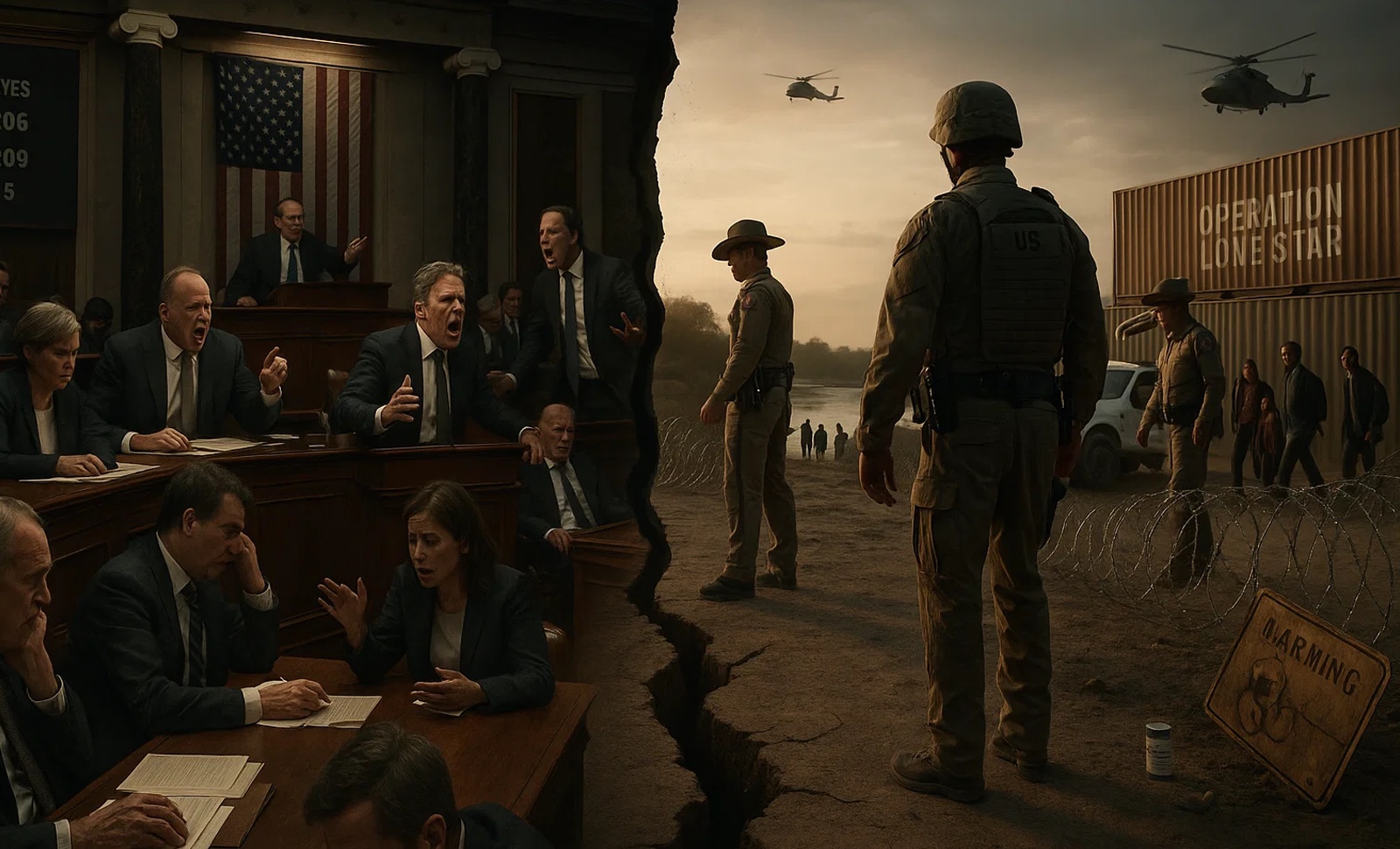While immigration debates continue in Washington, communities along America’s southern border are experiencing a very different reality – something that is characterized by increased uncertainty, limited resources, and a growing perception that federal leadership has fallen short of expectations. Now, Republican-led states like Texas and Arizona are stepping in to do what the federal government refuses to do – to defend their own nation’s borders.
This crisis at the southern border isn’t anything new, however it has reached a boiling point. Sadly, the Americans are witnessing a dramatic failure of both leadership and law, where asylum loopholes, overwhelmed enforcement, and unchecked migration are colliding to undermine national security. Congress has become a revolving door of empty promises, and states have been forced to take matters into their own hands out of desperation.
Congress has only spent years discussing immigration reform without making any major progress. While bipartisan efforts have emerged – such as compromise calls for asylum reform and border security funding, all that terribly failed under political pressure. At the heart of this matter is an outdated asylum system that is becoming increasingly weighed down, day by day. Many asylum seekers experience long delays before hearings and are discharged into the interior with little – to – no follow-up on it. It is through these voids of policies, state governments particularly in Texas and Arizona, have taken unprecedented measures to safeguard their borders.
States Taking Matters Into Their Own Hands
Governor Greg Abbott’s Operation Lone Star, which involves deploying state law enforcement and installing physical deterrents along the Rio Grande, reflects growing frustration over federal inaction.
“Texas has the right to defend itself because of President Biden’s ongoing failure to fulfill his duty to protect our state from the invasion at our southern border,” Abbott said earlier this year.
This sense of urgency has also fueled the passing of bills like Senate Bill 4, which would give local and state law enforcement in Texas the authority to arrest individuals suspected of entering the country illegally. Indeed, supporters believe this is an essential step to defend public safety and the rule of law in the absence of federal enforcement, but the law has drawn legal challenges, and critics warn that it risks racial profiling and constitutional overreach. Yet, many Texas officials insist their actions are motivated by the necessity for it and not politics.
Crime, Fentanyl, and the Politics of Safety
If the question is about ‘why’ such efforts are swiftly being taken up by the state, the answer is again – public safety. State leaders have pointed to a rise in fentanyl-related deaths and incidents involving migrants accused of major crimes for proving the whole point of having stricter enforcement against it. As fentanyl continues to devastate communities nationwide, officials point to the southern border as a critical entry point. This synthetic opioid is often smuggled across by cartels who exploit these porous gaps in the borders and is now one of the leading causes of death in Americans aged 18 to 45. The threat is not abstract when it’s your child lost to a fentanyl overdose, your town flooded with untraceable substances, or your community uncertain about who is coming through the border, especially under what intentions. These aren’t just numbers or talking points; they are deep personal fears, grounded in lived experiences and growing unease.
The immigration crisis unfolding across the southern border is no longer just a policy dispute – it’s a constitutional stress test, a humanitarian dilemma, and a political standoff rolled all into one piece. As the federal government fails to deliver lasting solutions, states are rewriting the rules out of necessity and fear. As the crisis deepens, the battle lines are clear: one side stands for sovereignty, security, and rule of law; the other clings to utopian ideals that collapse in the face of real-world consequences. Until then, the burden continues to fall on border communities and state officials, caught in the crossfire between enforcement and empathy. The border can’t wait and neither do the people of America.
















